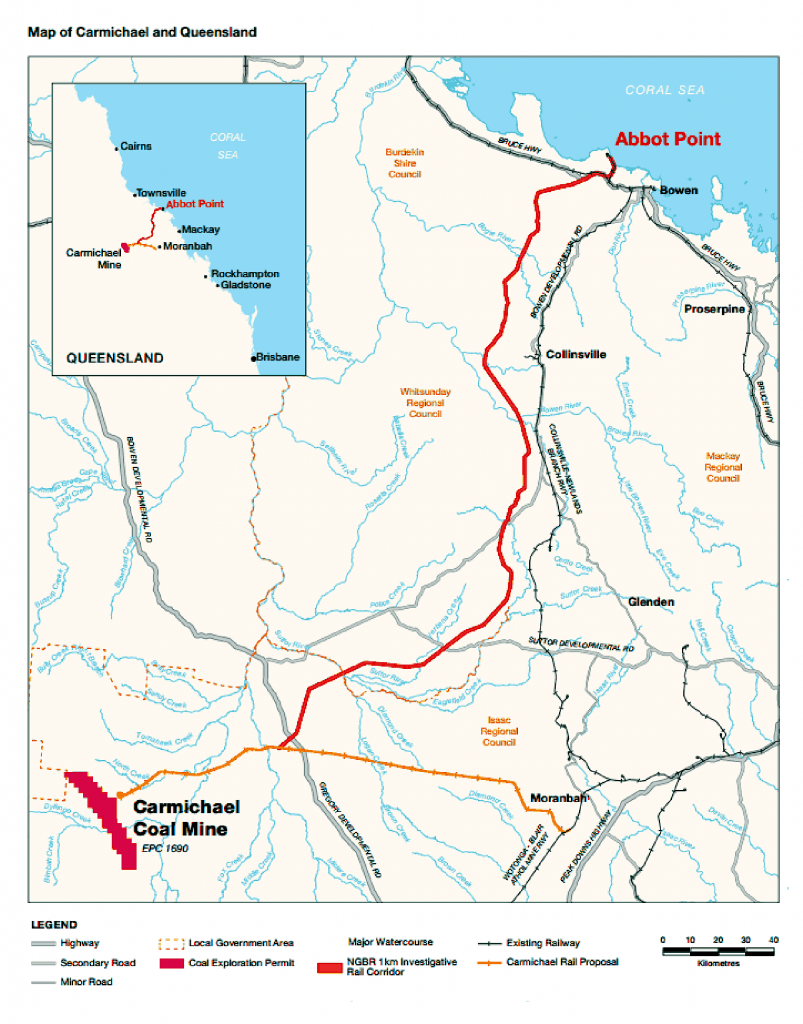The most divisive mining project in recent Australian history can finally break ground after the state of Queensland cleared the final regulatory hurdle on Thursday for Adani Group’s Carmichael coal mine.
The approval of the project’s groundwater management marks the end of an almost 10-year wait, during which the proposed mine faced steady resistance by environmental groups. Local and international detractors, including the scientific, educational and cultural arm of the United Nations (UNESCO), worried about the impact on marine ecosystems, particularly by the Great Barrier Reef.
It also potentially paves the way
for half a dozen new thermal coal mines to come online in Australia by opening
up Queensland’s remote Galilee basin with rail infrastructure to the coast
320km away at Abbot Point.
Other coal projects in the area include some of Australia’s wealthiest mining billionaires such as Gina Rinehart, who has a joint venture with India’s GVK Group, and controversial politician Clive Palmer.
The go-ahead to the Carmichael mine potentially opens the door for several other coal projects in the Galilee Basin, with a planned 189km rail link to the nearest port at Abbot Point set to make extraction feasible.
The Carmichael project, acquired by
the Indian conglomerate in 2010, is expected to produce 8-10 million tonnes of
thermal coal a year and cost A$2 billion ($1.4 billion) during its initial
phase.
“We’re ready to start work on the Carmichael Project and deliver the jobs these regions so badly need,” chief executive Lucas Dow said in a statement.
“[The authorization] confirms the mine’s plan complies with all regulatory conditions set by the Australian and State Governments, bringing to a close a two-year process of rigorous scientific inquiry, review and approvals,” Dow added.
According to official estimations, Carmichael will contribute $2.97 billion each year to Queensland’s economy and will create 1,500 direct and 6,750 indirect jobs during ramp up and construction.

The news come as other developed
nations step up strategies to meet Paris Agreement emissions targets, and as several
banks and insurers scale back exposure to the fossil fuel and to new thermal
coal mines in particular.
Just this week, Norway’s $1 trillion sovereign wealth fund revealed it would dump billions in coal investments
Australia, in turn, has pledged to cut emissions by 26% on 2005 levels by 2030.
Thermal coal is one of the largest
sources of greenhouse gas emissions. If burnt, output from Carmichael would release
700m tonnes of carbon dioxide into the atmosphere every year for more than 50
years.
